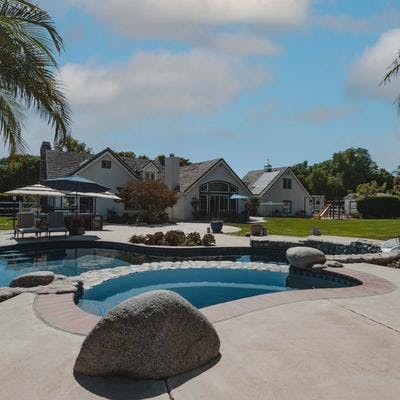
The Appeal of UAE Property Market
When it comes to investing in real estate, the United Arab Emirates (UAE) presents a compelling case for international buyers. This region's property market has a lot to offer, from its diverse real estate portfolio to its strategic location.
Why the UAE?
The UAE's property market stands out for several reasons. It is home to a thriving economy, bolstered by a robust infrastructure and a strategic location that serves as a gateway between the East and West. For property investors, this translates into a high potential for capital appreciation and rental yields.
The UAE is also renowned for its world-class developments, including luxury apartments, waterfront villeries, and commercial properties. Investors can choose from a variety of property types to suit their portfolio.
Furthermore, the UAE offers a high standard of living, with excellent healthcare, education, and lifestyle amenities. This attracts a diverse population of expatriates, contributing to a strong rental market.
The table below shows a comparison of property market indicators between the UAE and other popular destinations for international property buyers.
| Property Market | Capital Appreciation % | Rental Yield % |
|---|---|---|
| UAE | 3.5 | 7 |
| Singapore | 2.1 | 2.5 |
| Thailand | 3 | 5 |
| Bahrain | 2.5 | 6 |
| Qatar | 2 | 6 |
| Saudi Arabia | 2.8 | 6.5 |
Unique Opportunities for International Buyers
The UAE has taken significant steps to attract international investors, including relaxing property ownership laws and offering long-term visas for property investors. As a result, buying property in UAE as an international buyer has never been easier or more appealing.
In particular, locations like Dubai and Abu Dhabi offer freehold property ownership to international buyers, allowing them to fully own property in designated areas. This is a significant advantage compared to other countries in the region where property ownership may be restricted for foreign investors.
In addition to this, the UAE's property market offers a high level of transparency, with clear processes and regulations for property transactions. This makes the buying process straightforward, even for international buyers.
Finally, the UAE also offers attractive financing options for property buyers, with several banks offering mortgage loans to non-residents.
As you can see, the UAE's property market offers unique opportunities for international buyers. If you're considering investing in overseas property, the UAE is definitely worth considering. For comparison, you may also want to explore our guides on buying property in Singapore as an international buyer, buying property in Thailand as an international buyer, buying property in Bahrain as an international buyer, buying property in Qatar as an international buyer, and buying property in Saudi Arabia as an international buyer.
Understanding the UAE Property Market
To make a well-informed decision when buying property in UAE as an international buyer, it's crucial to understand the key players in the region's property market and the current trends and projections.
Key Players: Dubai, Abu Dhabi, and Beyond
The UAE property market is spearheaded by two key players: Dubai and Abu Dhabi. These two emirates are known for their luxurious properties, high standard of living, and dynamic property markets.
Dubai is one of the most sought-after locations for international buyers. Renowned for its iconic skyline, world-class infrastructure, and stable economy, Dubai offers a diverse range of properties, from lavish villas to modern apartments.
Abu Dhabi, the UAE's capital, is another attractive destination for property buyers. With its strategic location, robust infrastructure, and promising economic outlook, Abu Dhabi presents a myriad of opportunities for international property investors.
Beyond Dubai and Abu Dhabi, other emirates such as Sharjah, Ajman, and Ras Al Khaimah also offer unique opportunities for property investments. These areas are known for their affordable property prices, rich cultural heritage, and promising growth potential.
Trends and Projections in the UAE Property Market
The UAE property market is characterized by its resilience and adaptability. Despite the global economic uncertainties, the market has shown remarkable recovery, with property prices stabilizing and demand steadily increasing.
One notable trend is the growing demand for sustainable and smart homes. With the UAE's commitment to sustainability and technological innovation, properties that incorporate green features and smart home technologies are highly sought after.
Looking ahead, the UAE property market is projected to witness steady growth. Key driving factors include the UAE's strategic initiatives to attract foreign investments, its robust economic recovery, and the increasing demand for residential and commercial properties.
Here is a brief overview of the UAE property market projections:
| Year | Projected Growth Rate |
|---|---|
| 2022 | 3.5% |
| 2023 | 4.0% |
| 2024 | 4.5% |
Understanding the dynamics of the UAE property market can help international buyers make informed decisions and seize the best investment opportunities. As you explore the possibility of buying property in the UAE, we encourage you to compare and contrast the property markets in other countries as well. Check out our resources on buying property in Singapore as an international buyer, buying property in Thailand as an international buyer, and buying property in Bahrain as an international buyer for more insights.
Legal Aspects of Buying Property as an International Buyer
When considering buying property in UAE as an international buyer, it's crucial to understand the legal landscape. This includes the UAE property ownership laws and any specific legal considerations for international buyers. With a clear understanding of the legal framework, you can navigate the UAE property market with confidence.
Understanding UAE Property Ownership Laws
UAE's property ownership laws have evolved to be more inclusive and inviting for international investors. Initially, property ownership was restricted to UAE nationals and GCC citizens. However, in 2002, the Dubai government introduced a freehold property law, allowing non-UAE nationals to buy, sell, and lease properties in certain designated areas.
This significant change opened doors for international investors and led to a surge in the UAE property market. Today, international buyers can own freehold property in designated areas across UAE, including parts of Dubai, Abu Dhabi, and Ras Al Khaimah.
Here's a simple breakdown of the types of property ownership in the UAE:
| Ownership Type | Description | Who is Eligible |
|---|---|---|
| Freehold | Full ownership of the property and the land it stands on. | UAE nationals, GCC citizens, and non-UAE nationals in designated areas. |
| Usufruct | Right to use and profit from a property belonging to another party for a period of up to 99 years. | UAE nationals, GCC citizens, and non-UAE nationals. |
| Musataha | Right to build on or develop land belonging to another party for a period of up to 50 years. | UAE nationals, GCC citizens, and non-UAE nationals. |
Legal Considerations for International Buyers
While the UAE property market offers unique opportunities for international buyers, it's important to understand the specific legal considerations involved in buying property in the UAE:
- Property Registration: Registering the property with the relevant land department is a mandatory step in the UAE. This safeguards the buyer's ownership rights and provides legal protection.
- Due Diligence: It's crucial to conduct thorough due diligence before purchasing a property. This includes verifying the seller's ownership rights, ensuring the property is free from any liabilities, and checking that all permissions for transfer of property are in place.
- Legal Representation: Having legal representation can help navigate the complexities of the UAE property market. A lawyer can guide you through the property buying process, ensure all legal procedures are followed, and help protect your interests.
- Local Regulations: The UAE consists of seven emirates, each with their own local regulations regarding property ownership. International buyers should familiarise themselves with the local laws of the emirate where they wish to purchase property.
Understanding the legal aspects of buying property in the UAE can be complex, especially for international buyers. However, with the right knowledge and guidance, it's possible to successfully navigate the UAE property market and seize the opportunities it offers. Whether you're considering buying property in the UAE or exploring other markets like Singapore, Thailand, Bahrain, Qatar, or Saudi Arabia, understanding the legal landscape is key to making informed decisions.
The Buying Process: A Step-by-Step Guide
Embarking on the journey of buying property in UAE as an international buyer can seem daunting, but with the right information and guidance, it can be a straightforward and rewarding process. In this section, we'll provide a step-by-step guide to help you navigate through the buying process successfully.
Pre-Purchase Research
Before you start viewing properties, it's crucial to conduct thorough research. Familiarise yourself with the different regions in the UAE, their property markets, and the types of properties available. Analyse your budget and financial capabilities, and consider the potential return on investment.
Useful resources for your research could include real estate websites, forums, news sites, and government portals. Understanding the property market in other countries can also be beneficial. For instance, you might find it useful to read about buying property in Bahrain as an international buyer.
Property Viewings and Selection
Once you've conducted your initial research, it's time to start viewing properties. You can arrange viewings directly with property owners, through real estate agents, or by attending open houses. Remember to take notes during each viewing and consider aspects such as location, size, condition, price, and potential for rental income or capital growth.
Negotiating and Making an Offer
After you've found a property you're interested in, the next step is to negotiate the price. It's advisable to work with a real estate agent who is experienced in the UAE property market. They can guide you through the negotiation process, helping you secure the best deal. Once you and the seller have agreed on a price, you can make a formal offer.
Completing the Purchase
If your offer is accepted, you will then move onto the final stage of the buying process - completing the purchase. This involves signing a contract, paying the agreed purchase price, and registering the property in your name at the relevant UAE land department.
The exact process and documentation required can vary depending on the region in the UAE and the type of property you're buying. Therefore, it's advisable to work with a legal professional who can guide you through this process and ensure that all legal requirements are met.
Ultimately, the process of buying property in the UAE as an international buyer is a journey that requires careful planning and thorough research. By understanding each step of the process, you can navigate the UAE property market with confidence and make a successful purchase.
Financing Your UAE Property
Once you've made the decision to invest in the UAE property market, the next step involves understanding how to finance your purchase. This section will guide you through mortgage options in the UAE and the unique financial considerations for international buyers.
Understanding Mortgage Options in the UAE
In the UAE, there are numerous mortgage options available to international buyers. These typically fall into two categories: fixed-rate mortgages and variable-rate mortgages.
Fixed-rate mortgages offer a constant interest rate for the duration of the mortgage term. This means your monthly repayments stay the same, helping you to budget effectively.
Variable-rate mortgages, on the other hand, have interest rates that may fluctuate over time. These changes are usually tied to changes in the UAE Central Bank's interest rate.
Keep in mind that the exact terms and conditions of your mortgage will depend on various factors, such as your income, credit history, and the property's value.
| Mortgage Type | Key Feature |
|---|---|
| Fixed-rate mortgage | Stable monthly repayments |
| Variable-rate mortgage | Fluctuating interest rates |
Financial Considerations for International Buyers
For international buyers, there are a few extra financial considerations to keep in mind when buying property in the UAE.
Firstly, it's important to consider the impact of exchange rates on your purchase. Fluctuations in the exchange rate between your home currency and the UAE dirham could affect the total cost of your property.
It's also crucial to consider the costs associated with transferring money internationally. These can add up, especially if you're making regular mortgage payments from abroad.
Finally, as an international buyer, you might be subject to additional fees or taxes in your home country related to owning overseas property. It's advisable to consult with a financial advisor or tax professional to fully understand these potential liabilities.
In conclusion, financing your property purchase in the UAE involves understanding the available mortgage options and being aware of the financial implications associated with being an international buyer.
For more insights on buying property internationally, check out our articles on buying property in Singapore, Thailand, Bahrain, Qatar, and Saudi Arabia as an international buyer.
Managing Your UAE Property
Once you've successfully navigated the process of buying property in UAE as an international buyer, the next step is to manage your new investment. This involves understanding property management in the UAE and considerations for those looking to rent out their property.
Understanding Property Management in the UAE
Property management in the UAE can be quite unique compared to other countries due to the region's specific regulations and cultural nuances. As such, it's crucial to familiarise yourself with the local rules and customs to ensure that you manage your property effectively.
In essence, property management involves overseeing and controlling all aspects of your property, from maintenance and repairs to tenant relations and legal compliance. This includes ensuring that the property is always in good condition, dealing with tenants' concerns, and adhering to UAE's property laws.
Many international buyers opt to hire a local property management company to handle these tasks. These companies are well-versed in UAE's property market and can provide comprehensive services to ensure that your investment is well-maintained and profitable.
Renting Out Your Property: What You Need to Know
Renting out your UAE property can be a lucrative venture, especially given the high demand for quality accommodations in key areas like Dubai and Abu Dhabi. However, it's important to understand the local rental laws and market trends to maximise your returns.
As a landlord, you are responsible for maintaining the property and ensuring it complies with the relevant health and safety regulations. You are also required to respect the tenant's rights to quiet enjoyment of the property.
The UAE has specific laws governing rental increases and evictions, so it's crucial to familiarise yourself with these to avoid potential disputes. It's also advisable to have a solid rental agreement in place that outlines the responsibilities of both parties.
Here's a snapshot of the average rental yields in some key areas in the UAE:
| Location | Average Rental Yield (%) |
|---|---|
| Dubai | 5.8 |
| Abu Dhabi | 7.0 |
| Sharjah | 6.5 |
Remember, investing in property is not just about buying the right property; it's also about managing it effectively. By understanding the property management landscape in the UAE and the ins and outs of renting out your property, you can maximise your returns and enjoy the benefits of your investment.
For more information about buying property in other countries as an international buyer, you can refer to our guides on buying property in Singapore as an international buyer, buying property in Thailand as an international buyer, buying property in Bahrain as an international buyer, buying property in Qatar as an international buyer, and buying property in Saudi Arabia as an international buyer.





